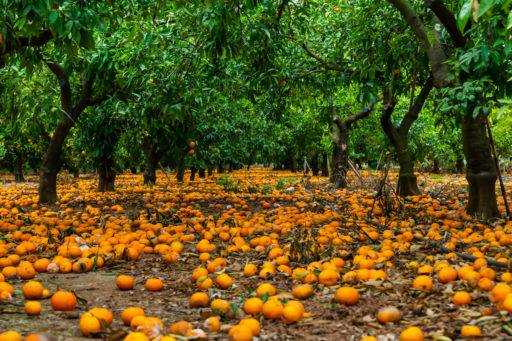03/06/2025
Perhaps the title alone already raises a few questions for you: what exactly are “food losses,” and why is this about the European Union? But above all: why should I care?
In these uncertain times, where everything moves at lightning speed and we barely have time for anything, let alone to read reflective pieces, we at FOLOU are taking the bold step of trying. We’re launching a series of news articles designed not just to share outcomes and figures from our research, but to open up spaces for reflection, dialogue, and deeper understanding. Sometimes the journey toward a number matters just as much as the number itself. As they say, sometimes happiness is found in the waiting room of happiness itself.
FOLOU is a European project that addresses a problem you might have vaguely considered before, but that rarely gets the attention it deserves: food lost during primary production. Take a moment to really think about that last sentence: we are losing food in the very same place where it’s being produced.
Even more surprising is that, to this day, we don’t really know the full scale of these losses. One reason is the inherent difficulty in measuring them. Imagine you are a policymaker in your country, region, or city, and you want to understand the magnitude of this issue. Where would you even begin? Stop for a second and think: how would you do it? I’d love to hear the answer you came up with (and if you feel like sharing it, you can email Héctor Barco Cobalea of Espigoladors at circular@espigoladors.com).
As for me, I’d start by defining our object of study, what exactly do we mean by food loss? and from there, work to develop a robust, replicable methodology to quantify it. No small task. And yet that’s precisely what FOLOU aims to do: to show that understanding the problem is not only possible, but worth the effort.
When it comes to that first step, defining food loss, FOLOU has already made significant progress, with much more to come. In fact, we’ve hosted a dedicated seminar that spent over an hour and a half solely on discussing how food loss should be defined within the EU context. Two additional seminars focused on how to measure those losses at the farm level and at broader scales: cities, regions, or even entire countries.
To give a quick overview: the European Union is currently working to better understand the food waste that occurs across the entire agri-food chain, from the moment a product is harvested to the point it reaches our homes. The FAO’s global estimate gives us a sense of just how significant this is: about one-third of all food produced globally ends up being wasted, much of it dumped in landfills.
With such numbers, it seems obvious that this issue is worth investigating. But here’s the catch: most studies, including those from the EU, only start counting once the food has already been harvested (or caught or slaughtered). So what happens before that point? The truth is, we don’t know.
FOLOU is trying to fill that gap. Right now, many producers are forced to accept that in order to sell X, they need to produce X+Y, with Y being the portion that is lost or discarded before sale. This comes with clear economic, environmental, and social costs, both for the producers themselves and for society at large.
We want to get to know the ‘Y’. And we want to do it not only through theoretical frameworks, but by listening directly to producers who face this challenge every day. We aim to learn from their experience: their data, their explanations, and most importantly, how we might enable other producers, researchers, companies, and public authorities to measure and reduce these losses themselves.
To that end, FOLOU is setting up a series of case studies. These will measure food losses in a variety of products and regions within the European Union, with the goal of building a diverse, practical body of knowledge to support that larger ambition.
This article is the first in a series that aims to share that journey, not just the final results, through recounting the experiences gained during field visits and offering reflections along the way.
If you’re up for the challenge, welcome aboard.
